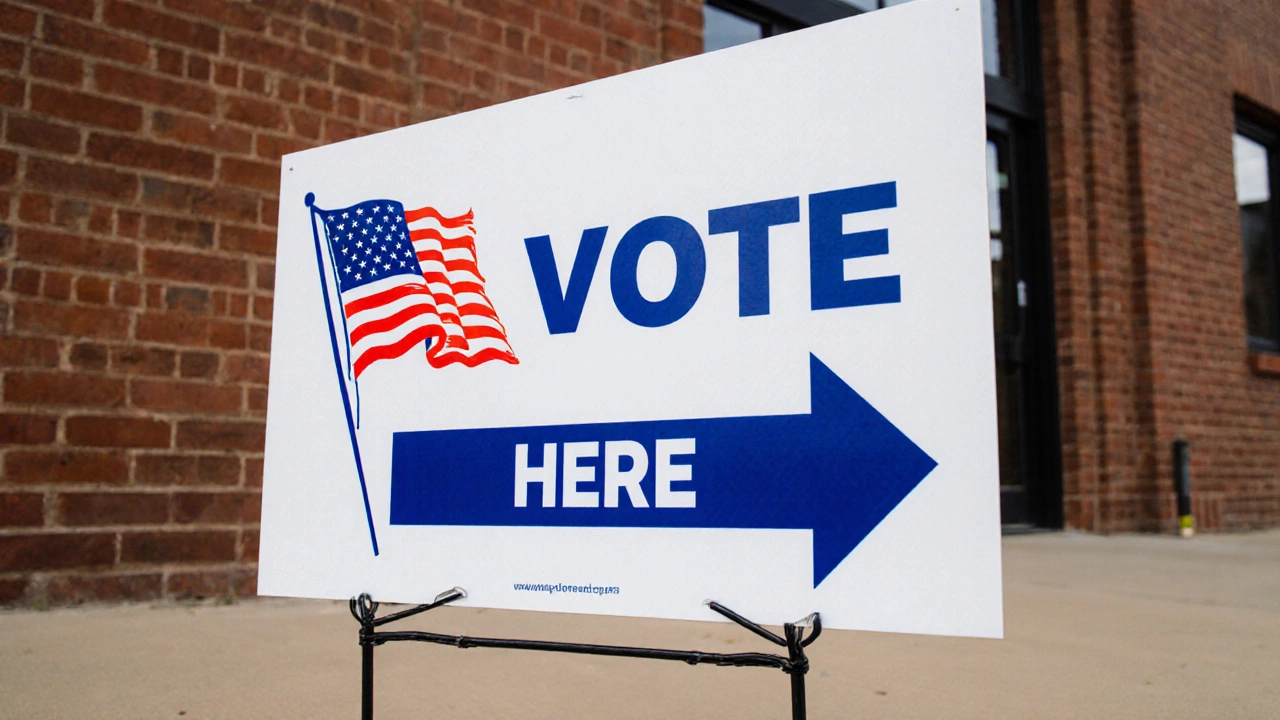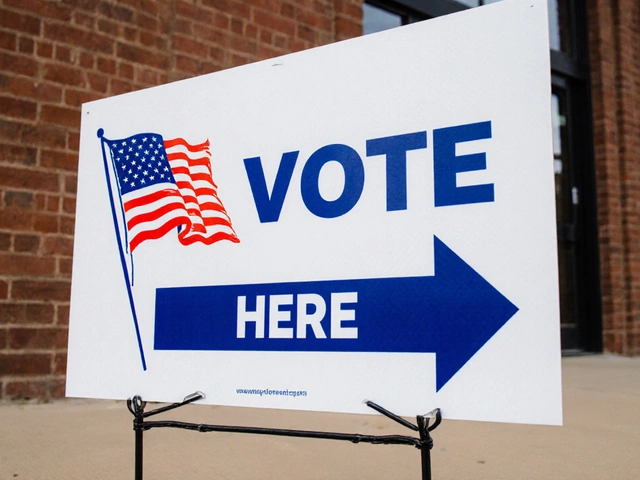When Brant Walker, Ray Strebel and David Goins each filed as independents, the Alton mayoral race instantly became the headline act of Madison County’s April 1, 2025 Consolidated Election. The three‑way contest unfolded alongside a slate of city‑wide races, ward contests and school‑board elections that touched every corner of the county. By the evening of election day, the Madison County Clerk’s Office, led by Linda A. Andreas, had certified the results after every precinct—100 percent—had reported its tallies.
Election Overview
Illinois law mandates that the first Tuesday after the first Monday in April serve as the date for general elections. In 2025, that fell on April 1, and the consolidated format meant voters in Alton, Edwardsville, Collinsville and dozens of smaller municipalities cast ballots for mayoral, city‑council, school‑board and various local offices all at once. The April 1 ballot was preceded by a February 25 primary, which trimmed the field for partisan contests but left the independent mayoral race untouched, because non‑partisan contests in Illinois bypass primary elimination.
Early voting opened March 18 and ran through March 26, with over 12,300 mail‑in ballots processed by the county’s election board. Voter registration deadlines fell on February 10, giving newcomers a narrow window to join the electorate. According to the Clerk’s Office, turnout for the consolidated election reached 58.4 percent—slightly above the 2019 average for Madison County’s municipal elections.
Mayor Race Details
Alton, Illinois residents saw a rare three‑candidate independent showdown. Brant Walker, a former city planner, campaigned on revitalizing the downtown riverfront and boosting affordable housing. In an interview on February 20, Walker said, “Alton needs a growth strategy that respects its historic neighborhoods while attracting new families.”
Ray Strebel, a small‑business owner, positioned himself as a fiscal hawk, promising to streamline the city’s budget and cut what he called “wasteful contracts.” Strebel told the Alton Gazette on March 2, “We’ll get our tax dollars back to the people who need them most.”
The third contender, David Goins, a community activist, centered his platform on public safety and expanding after‑school programs. “Safety isn’t just about police presence; it’s about opportunity,” Goins remarked at a town‑hall on March 15.
When the votes were tallied, Walker edged out Strebel by a narrow margin of 1.8 percentage points, securing 42.3 percent of the total vote. Strebel earned 40.5 percent, and Goins captured 17.2 percent. No runoff was required because the city charter allows a plurality winner.
Other City Contests
The mayoral battle was flanked by a contested City Clerk race between Cheryl L. Ingle and Lauren Wilson. Ingle, a longtime municipal employee, won with 55 percent of the vote, citing her “deep institutional knowledge” as a key advantage.
For City Treasurer, Elizabeth Allen ran unopposed, effectively guaranteeing her a six‑year term. Allen’s campaign literature highlighted her previous experience as a financial analyst for a regional bank.
Ward‑level races also drew attention. In Ward 5, John M. Meehan appeared on the ballot as the sole candidate for alderperson, but a write‑in challenge emerged that ultimately fell short of the 10‑percent threshold required to trigger a runoff.
Ballot Style 515—designated for Alton Ward 17—listed all of the above contests, along with school‑board positions for District 21 and a referendum on a downtown parking garage. Voters were instructed to darken the oval next to their chosen name and, for write‑ins, to darken the oval to the left of a blank space before writing the candidate’s name.
County‑Wide Implications
While Alton grabbed most of the media spotlight, the consolidated election also reshaped leadership in surrounding towns. In Edwardsville, the incumbent mayor lost to a newcomer on a platform of expanding the city’s bike‑lane network. In Collinsville, a tight race for the school‑board resulted in three new members pledging to review the district’s curriculum standards.
County officials, including Clerk Andreas, emphasized that the 100 percent precinct reporting rate underscores the robustness of Madison County’s election infrastructure. “Every ballot was counted, every precinct reported, and the public can see the results in real time on our website,” Andreas said in a post‑certification press release on April 4.
The outcomes also set the stage for the upcoming 2026 General Election cycle. With several independent officeholders now in place, party strategists are watching closely to gauge whether the independent surge in Alton is a local anomaly or part of a broader shift away from partisan labels in suburban‑midwest municipalities.
Future Outlook
Mayor‑elect Brant Walker will be sworn in on May 3, 2025, during a ceremony at the Alton City Hall. His inaugural address is expected to outline a three‑point plan: riverfront redevelopment, a municipal‑wide broadband upgrade, and a task force on affordable housing.
City Clerk‑elect Cheryl L. Ingle has already outlined an administrative overhaul aimed at digitizing records and reducing processing times for permits. Meanwhile, the City Treasurer, Elizabeth Allen, will begin a series of public finance workshops aimed at increasing transparency around the city’s bond issuances.
Analysts from the University of Illinois Springfield’s Political Science Department suggest that the independent victories could spur a wave of non‑partisan candidate filings across the county in 2027, particularly if the newly elected officials meet their campaign promises.
Key Facts
- Election date: April 1, 2025 (Consolidated Election)
- Primary date: February 25, 2025
- Mayor‑elect: Brant Walker (Independent) – 42.3 % of vote
- County Clerk’s Office certified results on April 4 after 100 % precinct reporting
- Early voting period: March 18–26, 2025 (12,300+ mail‑in ballots)
Frequently Asked Questions
How will the new mayor’s policies affect Alton’s downtown revitalization?
Walker’s plan calls for a $3.2 million public‑private partnership to rebuild the riverfront promenade, add mixed‑use housing and improve pedestrian lighting. If the city secures the projected $1.5 million state grant, the project could break ground by late 2025, potentially boosting local commerce by up to 12 percent within two years.
What does the independent surge mean for party politics in Madison County?
Political scientists note that the success of independents in Alton mirrors a modest but growing trend in suburban Midwestern towns where voters prioritize local issues over party affiliation. If similar outcomes appear in the 2026 and 2028 cycles, both Democrats and Republicans may need to recalibrate outreach strategies.
When will the certified election results be officially posted online?
The Madison County Clerk’s Office uploaded the certified vote totals to its official website on April 4, 2025, and the data is available for public download in CSV format. Future updates, such as recount requests, would be reflected within 48 hours of any change.
What were the voter turnout numbers compared to the 2021 election?
Turnout hit 58.4 percent in 2025, up from 54.1 percent in the 2021 consolidated election. The increase is attributed to heightened interest in the mayoral race and expanded early‑voting locations across the county.
How can residents contact the newly elected officials?
Mayor‑elect Walker’s office will open a constituent services line on May 5, 2025. Clerk‑elect Ingle and Treasurer‑elect Allen have already posted their email addresses on the City of Alton’s official website, with response times pledged under 48 hours.



